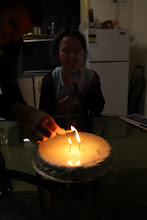Fisher, Jean. “Towards a Metaphysics of Shit,” in Documenta 11 Platform 5 The catalog, Ostfildern-Ruit: Hajte Cantz, 2002: 63 – 70
A couple of years ago, some friends of mine were driving home through the suburbs when a cat ran in front of their car, and with a thud, they hit it square on. At first, they panicked, and kept driving, but then, feeling guilty, returned to find it. Eventually, they found it slumped on a grass verge. There was no collar so one of the boys took a cricket bat from the boot and hit the cat on the head a couple of times to make sure that it was dead and not in pain. Finally they reached home and the driver backed into the garage. It wasn’t until they filed past the front of the car that they noticed a cat stuck in the car’s grill.
There seem to be a few correlations between the anecdote as a sort of ‘counter-history’ as explored by Lionel Gossman and some of the functions and roles of the trickster as outlined by Jean Fisher in “Towards a Metaphysics of Shit”. For Gossman, anecdotes leave room for failure, contingency and the unheroic by being positioned outside of formal systems where history provides ‘orderly public narratives’ as stipulated by those in power (151). Even as archives become more voracious consumers of ‘micro narratives’ the traits of the anecdote and its telling often elude the demands of the archive for veracity and provenance (155).
Fisher points out that the meaning in any work of art cannot be definitive as the process of viewing is an open one, with the viewer construing ‘meaning from the relation between what the work presents and his or her own history and experience’ in the same way that the narratives of the trickster remain open to the interpretation of the listener (78). Anecdotes as a process (rather than a character or structure) seem to take this a step further by inviting the listener to retell the story. What is significant about this retelling (particularly in relation to the deeming of the anecdote as veracious or having clear provenance) is that in retelling, the teller is given agency over the relations and objects of the story as there is a mutual understanding between the (re)teller and listener (soon to be re-teller) that the relationships, objects, location and time of the anecdote are flexible and manipulable. The reteller becomes like the trickster in a way as they take on the roles of 'translator..mediator..."third man" and "shifter" (Fisher, 67)
This might be best illustrated by talking about the anecdote I began with. I have told this story time and time and again over the years. Though I have temporally positioned the anecdote as having occurred two years ago I am in fact certain that it happened far longer ago than that. I have said here that the ‘weapon’ was a cricket bat, yet in various tellings I have also made it a spade, a tyre iron and a piece of wood. I have used the image of the guys backing into their garage as a device to spatially anchor the story, whether there is a garage or not I don’t know. I position relationships of the people in the story as being friends of mine, yet I have no recollection which of my friends this happened to, or if they were even friends at all, it is entirely possible that I have simply retold an anecdote told to me. It is clear that this anecdote has been borrowed (Gossman, 163) and shaped for the context (162) yet its validity for the reader (or more usually, listener), like any anecdote is in some essence or gist of what happened or might not have happened (though, or course, the genesis of the story in itself is revealing of the certain circumstances from which it emerged (162)). To relate this back to the functioning of the trickster, a high level of contingency is created through an understood and accepted lack of traditional authority, veracity and provenance that comes from the processes of anecdotes, the ways they are constructed and reconstructed as they are told and retold.
Works Cited
Gossman, Lionel. “Anecdote and History” History and Theory Vol.42 No.2 (May 2003) 143 – 168.
Fisher, Jean. “Towards a Metaphysics of Shit,” in Documenta 11 Platform 5 The Catalog, Ostfildern-Ruit: Hajte Cantz, 2002: 63 – 70
Subscribe to:
Post Comments (Atom)

No comments:
Post a Comment